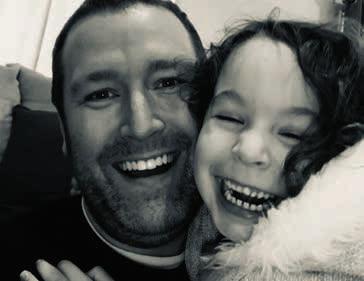MENTAL HEALTH AND THE WORKPLACE New Approaches To Wellness That Help ROI By Owen Ashton, CPA, CPSS
J
olting feelings struck my chest as I was driving home from work years ago. “Is this a heart attack?” I asked myself. I immediately changed direction to a hospital emergency room. Tests showed my heart to be quite healthy. “You have a very small chance of having heart problems over the next 10 years,” the doctor said. That was a relief, but what about those strange chest sensations? With the help of my wife, Becky, I determined it had been some kind of stress attack. I had a history with anxiety problems. Becky suggested they were likely related to work. I often felt like my job was in jeopardy. My boss at headquarters (on the other side of the country) liked to keep me on edge — a strange management style, I thought. On another afternoon, I became silently so upset at how he treated me during a telephone call that I left our offices and drove around for a few hours to calm down. I knew I should not let outside circumstances control how I felt. I sought counseling to help me develop healthier thinking habits. Perhaps you have experienced job stress like this. I’m sure I precipitated lots of stress in those working under my direction. Many years ago, there was a young man who fell asleep during meetings on multiple occasions. Also, his follow-up on assignments was quite poor. Rather than meet with him one-on-one to address these issues, I gave him a bad time, and he left the organization. Perhaps he had a sleeping disorder and I could have provided support to resolve the issue. Perhaps good follow-up skills were something he just hadn’t been exposed to but could have been taught. Another woman I hired had a difficult time understanding the mathematical concepts behind the
20
the journal entry | january 2021
economic value added model that I had developed for the company. Rather than spending time with her to walk through the mathematical underpinnings, I treated her with contempt and probably made her feel stupid. She wasn’t, but she left. When workers feel mistreated, misunderstood, or otherwise abused, this can cause trauma and can lead to adverse effects on individual functioning. Further, individuals who are predisposed to depression, anxiety, and other mental health conditions (and aren’t we all at least sometimes in our lives?) can be triggered so that these conditions are exacerbated, which also leads to poorer functioning. Unsupportive or hostile work environments not only put a burden on individual workers — or perhaps is traumatizing for the individual — they also burden productivity and organizational success. More and more research shows that these mental health matters significantly impact the organizational financial performance. This is because an organization’s workplace culture — and how that translates to how it feels to work there — is an amalgamation of the words and actions of all work associates, particularly of senior leaders as they set the example and the tone. They also make decisions that impact how easily workers can get professional treatment to help recover from mental health conditions. Treatment works! Untreated mental health conditions place an unneeded burden on everyone. I would not want to give the impression that individuals with mental health conditions are prone to be burdens on organizations. To the contrary, many are distinguished contributors. Nassir Ghaemi, a respected professor at Tufts University in Boston, writes that history









